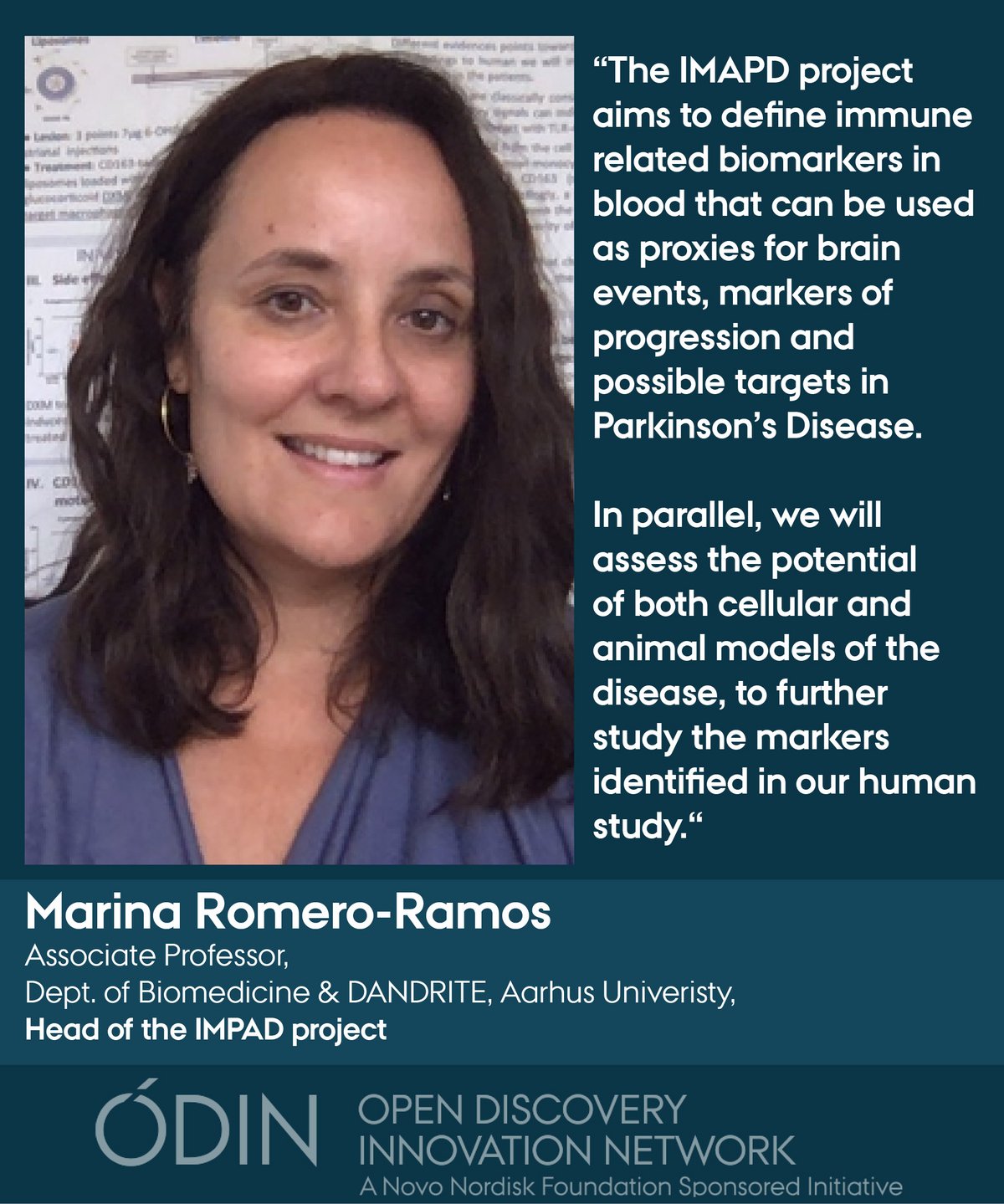Aim of the IMPAD project
The IMPAD project team includes partners from both Aarhus University and H. Lundbeck. Together they will identify biomarkers for Parkinson's Disease in the blood of patients.

Immune-related biomarkers and targets in Parkinson's disease (IMPAD)
The IMPAD team aims to define immune related biomarkers in blood that can be used as proxies for brain events, markers of progression and possible targets in Parkinson's Disease (PD); while in parallel assessing the translational potential of PD models for future pre-clinical studies. Team data suggest that peripheral immune cells and proteins change during PD stages in association to brain events, and also influenced by sex, but little is known about which factors in the peripheral immune system plays a role in PD and how immune changes correlate to PD subtypes, stages or sex.
IMPAD will analyze the transcriptome of immune cells by single cell sequencing and characterize immuneassociated proteins using a novel aptamer based proteomic method, APTASHAPE, in blood from differently affected PD patients. The cohort will be clinically evaluated and neuronal integrity analyzed by PET to determine PD subtypes and stages. The data from blood will be correlated to clinical and PET scores to identify novel biomarkers and putative targets that can later be tested in pre-clinical models.
In parallel, the academic partners and H.Lundbeck A/S will jointly analyze the immune response in an asyn based PD rat model and human iPSC-derived microglia, and by comparing datasets across our complementary studies identify common pathways in animal and human systems thus validating the models for further studies.
IMPAD will describe translatable biomarkers across patients and PD models and define specific biomarkers to support development of new drugs for disease-modifying treatments. The data will be of interest for companies focusing on PD, synucleinopathies and other brain diseases and the interplay with the immune system; aiming to develop diagnostic tools and interested in PD personalized medicine. The open sharing approach by clinicians, basic scientists and pharma, will secure efficient progression of knowledge towards patient care.
Participants:
AU: Marina Romero-Ramos, Department of Biomedicine
AU: Per Borghammer, Department of Clinical Medicine
AU: Jørgen Kjems, iNANO/Department of Molecular Biology and Genetics
AU: Sara Almeida Ferreira, Department of Biomedicine
AU: Ankita Singh, Department of Biomedicine
H. Lundbeck A/S: Karina Fog, Director of Cell Biology, Neuroscience
